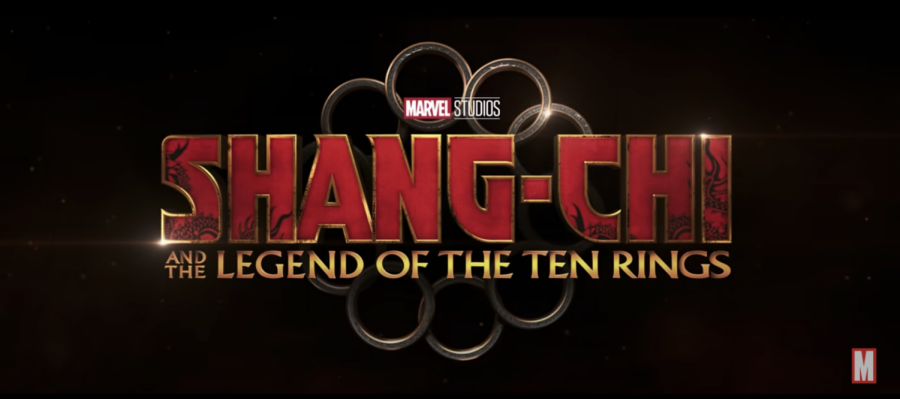‘Shang-Chi’ and the legendary power of Asian representation
As Marvel’s first film to feature an almost all-Asian cast, Shang-Chi makes strides for Asian representation.
“Shang-Chi and the Legend of the Ten Rings,” the wildly successful new Marvel movie, is a refreshing origin story that isn’t afraid to show off its deep cultural roots. It’s a groundbreaking film, but plot weaknesses prevent the movie from shedding the Marvel formula entirely. Still, after the travesty that was “Mulan,” it’s clear the creators of “Shang-Chi” care about getting Asian representation right this time around.
The story follows Shang-Chi as he is dragged back into his father’s criminal organization, the Ten Rings, after hiding out in America for years. Viewers are treated to a film that not only features Asian acting legends Tony Leung and Michelle Yeoh but also immerses viewers in a rich world inspired by the wuxia (martial arts fantasy) genre and Chinese legend. As an added bonus, a good chunk of the movie is in Mandarin, enhancing the viewing experience for native speakers.
Many critics are calling this movie a watershed moment, and for good reason. Representation is just as much about what happens outside the movie theater. Asian-Americans — especially us ABCs (American-Born Chinese) — get to feel seen because of something as small as watching lead actor Simu Liu whip out the white rabbit candy, rice crackers and shredded shrimp in his “10 Essentials” GQ video.
As Liu puts it, “Representation matters, and it’s about more than just actors on a screen. It’s about snacks, it’s about food, it’s about culture, in every possible way.” And hey, if legions of TikTok teens discovering (and thirsting over) Tony Leung is another one of those ways, more power to them.
Of course, the critiques that this really isn’t Asian Americans’ Black Panther are certainly valid. You could argue that this isn’t the kind of representation that we need — after all, most Asian Americans live in a reality far removed from the gravity-defying heroics of “Shang-Chi” or the high-roller life of billionaires in “Crazy Rich Asians.” In a time of horrific violence against Asians worldwide, “Shang-Chi” certainly could have dug deeper into the immigrant experience or xenophobia the way “Black Panther” was bold enough to tackle themes of systemic racism and Black liberation.
But just because “Shang-Chi” is one of the rare Asian-led films to break through to the mainstream, doesn’t mean it should be saddled with the burden of encompassing everything about the Asian American experience. It shouldn’t have to discuss racial trauma to count as representation. There are stories out there showing the nuances of our experience: “Kim’s Convenience,” “The Farewell” and Wong Fu Productions’ YouTube videos, to name a few. And “Shang-Chi” is paving the way for more.
“Shang-Chi” breaks down stereotypes and the “othering” of Asians by showing that we are far more than just a shallow archetype. The movie introduces a host of well-developed, three-dimensional characters to join the ranks of iconic Asian American characters like our favorite himbo Jason Mendoza (“The Good Place”), walking disaster Devi Vishwakumar (“Never Have I Ever”) and judgy conscience Ben Hargreeves (“The Umbrella Academy”).
Plot-wise, however, “Shang-Chi” falls prey to the same weaknesses as “Black Widow,” ultimately sacrificing compelling character development and relationships for Marvel’s typical zero-stakes final battle with far too much CGI.
The final act is especially disappointing because it completely sidelines instant fan-favorite Xialing (who rivals Yelena Belova for the title of most kickass little sister) in favor of highlighting Shang’s development. Instead of giving her a single moment of emotional closure with her father after being ignored and underestimated by him all her life, Marvel kills off the villain (because redemption is too much effort) and sets Xialing up as a girlboss villain, glossing over her past. From that awkwardly forced “girl power” scene in “Avengers: Endgame” to the entirety of “Captain Marvel,” Marvel doesn’t have a great track record with its female characters. Xialing’s development is just another example of how Marvel’s attempts at female empowerment are improving, but still fail to stick the landing.
So yes, “Shang-Chi” doesn’t manage to completely break out of the Marvel mold, but it still more than delivers, especially considering all the pressure put upon it to do well (insert stock photo Simu pointing and laughing at the haters). At the end of the day “Shang-Chi” is not just another derivative Marvel movie that pads Disney’s pockets: Its box office success signals to Hollywood that Asian stories — this time told by an Asian director, writer, costume designer and cast — have value.
Just a few months ago 42 percent of Americans were reported to be unable to name a single famous Asian American (yep, not even our Vice President…). “Shang-Chi” is shattering that invisibility, pushing Asian faces to the forefront of American media and making sure that we cannot be ignored.




